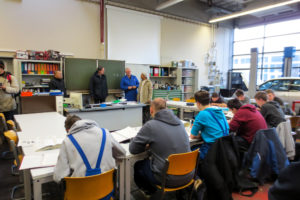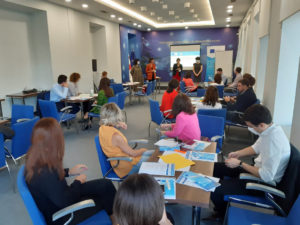
Technical Assistance for Implementation of Civil Society Dialogue and Civil Society Support Programmes (TR2015/DG/01/A5-01/001)
The overall aim of the project is to increase bilateral exchanges and cooperation between CSOs in Turkey and the EU at local, regional and national levels, to promote awareness raising initiatives on importance and benefits of membership of Turkey to the EU within Turkey and EU and on

Support to the Development of the Penitentiary and Probation Systems in Georgia
Countries are looking for an effective and fair way to penalize criminals and prevent recidivism significantly. Within this scope, the overall aim was to reduce recidivism in Georgia and to develop modern and efficient criminal and probation systems to ensure public safety that protects the human rights of

Technical Assistance for the Capacity Building for the Ministry of European Integration and Line Ministries for the Preparation of the Negotiation Process and Legal Approximation (SMEI IV)
Albania became an EU candidate country following the European Council’s decision in June 2014. The integration process is underway in line with the priorities set out in the Stabilisation and Association Agreement (SAA) and the EU’s Enlargement Strategy. The purpose of this project is to assist the Albanian

Skills Development and Innovation Support Project
The labour market demands quick responses to changes in the market and the demographic situation. Within this scope, the assignment aimed to provide technical assistance to the Government of Macedonia and the Ministry of Education and Science (MOES) to reform the 4-year Secondary Technical and Vocational Education and

Facility for the Implementation of the EU-Georgia Association Agreement- II
The project aims to strengthen the capacity of public institutions in Georgia to meet the country’s commitments under the EU-Georgia Association Agreement (AA), including the Deep and Comprehensive Free Trade Area.

Technical Assistance for Promoting Registered Employment
Unregistered employment remains one of the critical concerns and significant challenges of the Turkish labour market. Even though recent years have seen a downward trend in unregistered employment, a substantial portion of Turkey’s workforce is still employed without being registered with the social security system. In this regard,

